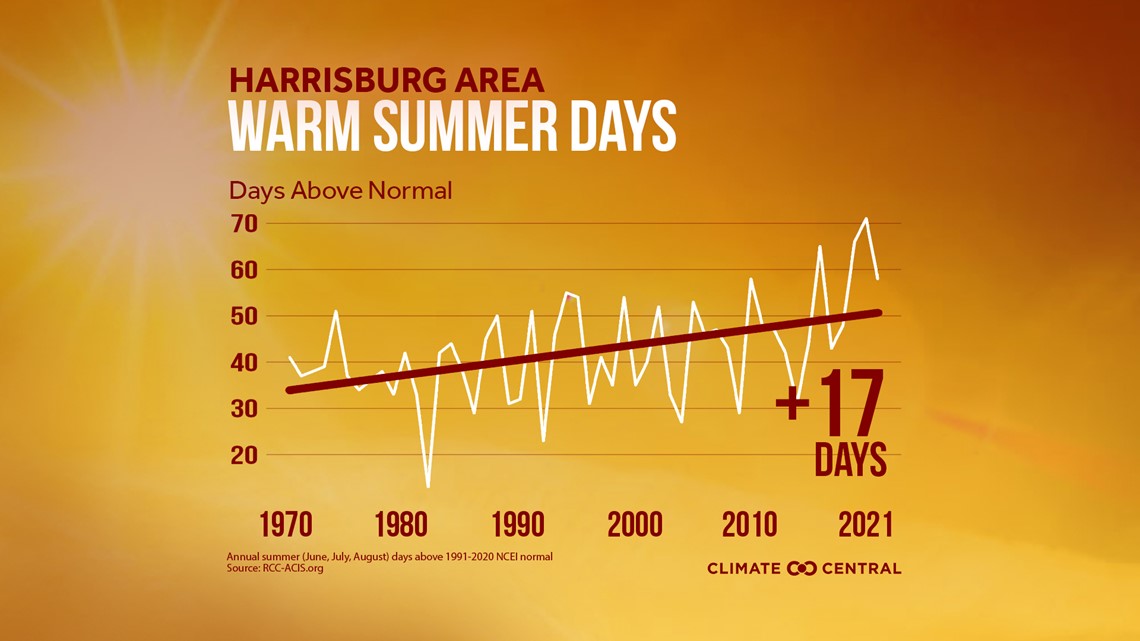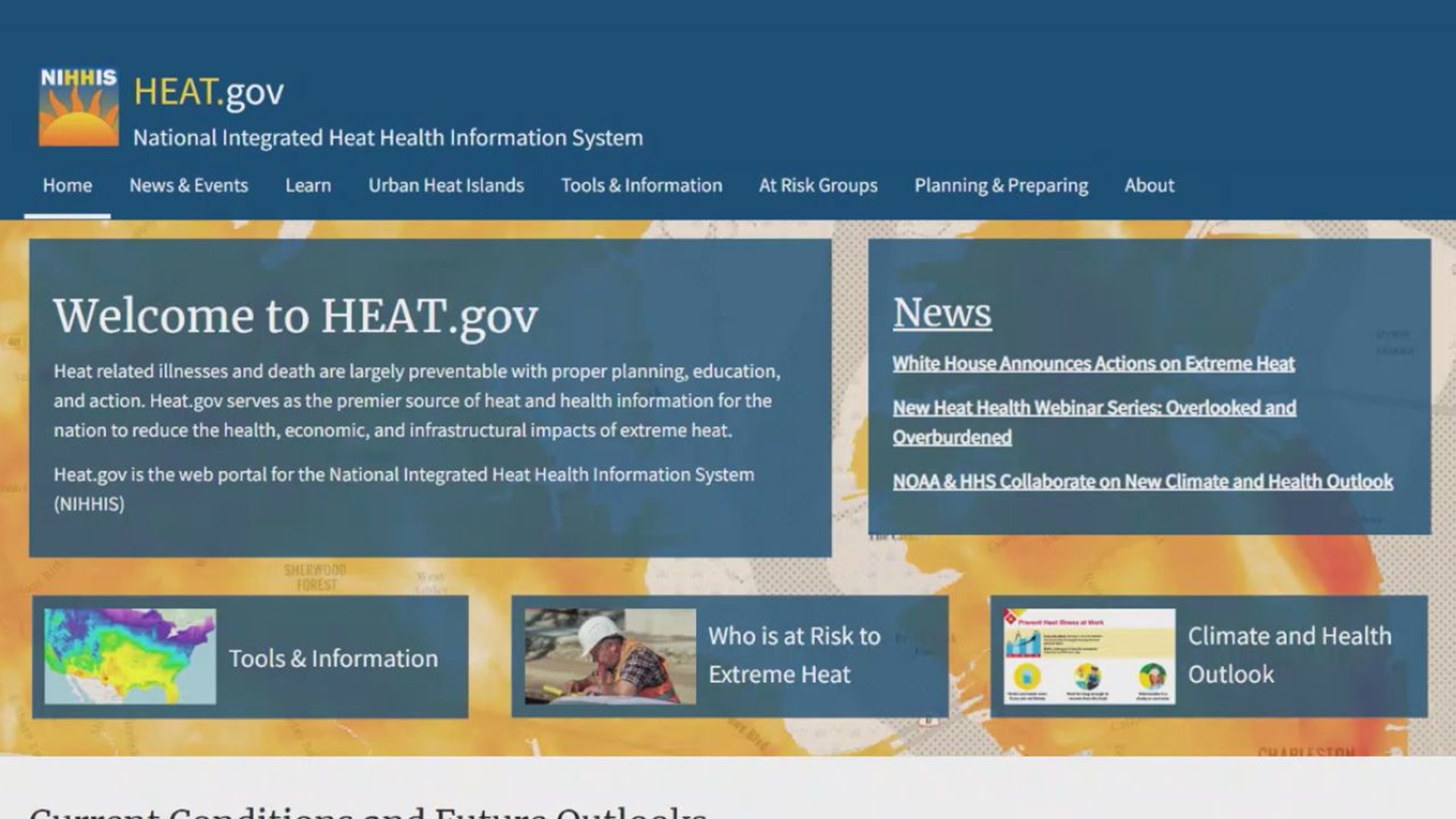YORK, Pa. — Heat.gov is a new website designed to provide both the public and decision-makers with clear, science-based information to help reduce the health risks of extreme heat.
The website was launched by the Biden Administration through the interagency National Integrated Heat Health Information System (NIHHIS).
Aaron Tyburski, Meteorologist at the National Weather Service State College, says the website is a great partnership between both science and health leaders.
“We take a lot of other agencies that deal with the end results of high heat and kind of work with them to put together a page of not only information from the past with the climate and showing how it’s come up to the current day," Tyburski said. "But also resources that individuals can use for any heat waves that may be impending, like we’ll see the next few days.”
According to National Oceanic and Atmospheric Administration (NOAA), extreme heat has been the greatest weather-related cause of death in the U.S. for the past 30 years, killing more than 700 people per year.
Tyburski says one of the biggest benefits of this new website is the ability to narrow down to a county-by-county basis.
“There are some sections on there that take a look at not only forecasts for today and the next few days, but you can look at the next month's forecast and take it down to your county," he says.
Users can access a climate and health outlook, a heat vulnerability mapping tool, and a heat and health tracker.
The planning and preparing section of the new website is a one-stop shop for learning how to identify heat-related illnesses. Tyburski also emphasizes the tips to stay cool if you have to be outside.
“We recommend drinking a lot of water just to stay hydrated and wearing light-colored clothing that will reflect away the sunlight," says Tyburski.
This tool will be important in a warming climate. According to a study by Climate Central, the Harrisburg area is already seeing 17 more above-average summer days now than what was seen in 1970.
It’s a trend that is likely to continue.



